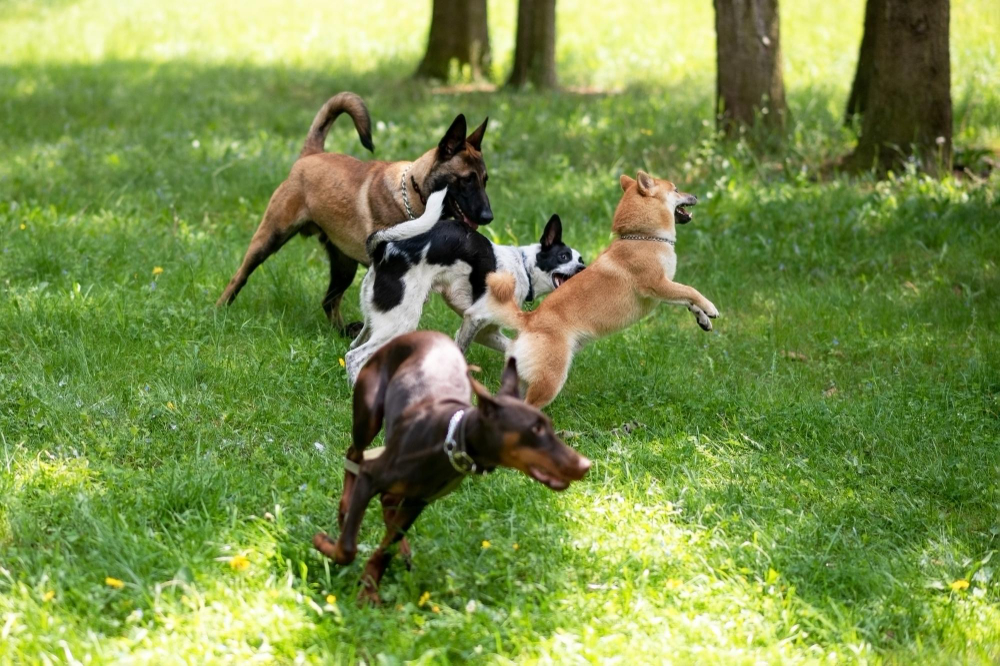Dog socialization is a crucial aspect of raising a well-rounded and well-behaved pet. Socialization allows dogs to develop essential social skills and become comfortable in various environments. In this article, we will explore the consequences of not socializing a dog, the benefits of proper socialization, and ways to help a dog in need. We will address essential questions such as:
- Is it ever too late to socialize a dog?
- Can some dogs not be socialized?
- Can you still socialize a 2-year-old dog?
- How do I fix my dog’s socialization?
We will also discuss social learning in dogs, various places to socialize dogs, puppy socialization training, and effective dog training for socialization techniques.
The Consequences of Not Socializing a Dog
A dog that has not been socialized may face various behavioral and psychological challenges, such as fear, aggression, and anxiety. These issues can make it difficult for the dog to interact with other animals, people, and new environments. Social learning in dogs is essential for developing proper social skills and reducing the risk of behavioral problems.
Can some dogs not be socialized? While most dogs can benefit from socialization, some may have extreme fear or aggression issues that require professional intervention.
The Benefits of Socializing Your Dog
Socializing your dog has numerous advantages, including:
- Improved social skills: A well-socialized dog is better equipped to interact positively with other animals and people.
- Reduced anxiety: Exposure to various situations helps dogs become more comfortable in new environments.
- Enhanced quality of life: A socialized dog can enjoy a wider range of experiences and activities with their owner.
- The opportunity to help a dog in need: Socialization can be especially beneficial for rescue dogs, helping them overcome past trauma and integrate into their new homes.
Places to Socialize Your Dog
Finding appropriate places to socialize your dog is crucial for their development. Some great options include:
- Dog parks: These designated areas allow dogs to interact with others in a controlled environment.
- Training classes: Enrolling your dog in training classes not only teaches them obedience but also exposes them to other dogs and people.
- Playdates: Arrange playdates with other dog owners, allowing your pets to interact in a controlled and familiar setting.
- Public spaces: Take your dog for walks in various environments, such as busy city streets, parks, and outdoor cafes, to expose them to different sights, sounds, and people.
Puppy Socialization Training: Getting Started Early
The critical period for socialization in puppies is between 3 and 14 weeks of age. During this time, puppies are most receptive to new experiences and learn essential social skills. Puppy socialization training involves exposing your puppy to various stimuli, such as people, other animals, and different environments. This period is called imprinting, and it is the time when the dog must socialize with the other puppies in the litter and with its mother.
Can you still socialize a 2-year-old dog? While the critical period for socialization occurs during puppyhood, it is still possible to socialize an older dog. The process may take longer and require more patience, but with consistent effort, older dogs can learn to adapt to new situations.
Dog Training for Socialization: Techniques and Strategies
To ensure successful socialization, utilize effective dog training for socialization techniques, such as:
- Positive reinforcement: Reward your dog with treats, praise, or play when they display positive behavior in social situations.
- Desensitization: Gradually expose your dog to stimuli they find intimidating or fearful, increasing the intensity or duration over time as they become more comfortable.
- Socialization exercises: Engage in activities that promote interaction with other dogs and people, such as group walks or play sessions.
- Professional guidance: If your dog is struggling with socialization, consider seeking the help of a professional dog trainer or behaviorist.
- Use of alternative techniques: Some techniques such as the use of aromatherapy and the use of supplements that make dogs calmer and less anxious can be used along with other techniques to improve the receptivity of dogs.
Remember that patience, consistency, and commitment are key when working on your dog’s socialization.
Is it Ever Too Late to Socialize a Dog?
Although socializing a dog is easiest during puppyhood, it is never too late to start the process. Older dogs may face additional challenges, such as ingrained habits or fears, but with consistent effort and the right approach, they can still learn to adapt to new situations.
To socialize an older dog, follow these steps:
- Assess their current social skills: Observe your dog’s behavior in various situations to determine their level of socialization and identify any problem areas.
- Create a socialization plan: Develop a plan that addresses your dog’s specific needs and incorporates a variety of socialization opportunities.
- Implement positive reinforcement: Use rewards such as treats, praise, or play to reinforce positive behavior and encourage your dog to embrace new experiences.
- Take baby steps: Gradually increase the intensity of socialization experiences, allowing your dog to adjust at their own pace.
- Seek professional help if needed: If your dog continues to struggle with socialization, consult a professional trainer or behaviorist for guidance.
Conclusion
Proper socialization is essential for a dog’s well-being and can significantly improve their quality of life. By exposing your dog to various experiences, people, and other animals, you will help them develop essential social skills and reduce the risk of behavioral issues. Whether you have a young puppy or an older dog, it is crucial to invest time and effort in their socialization.
Utilize the strategies discussed in this article, such as finding appropriate places to socialize your dog, implementing puppy socialization training, and using effective dog training for socialization techniques. Remember that patience and consistency are key, and with dedication, even older dogs can learn to embrace new experiences and social situations.
Don’t hesitate to seek professional help if your dog struggles with socialization. By addressing these issues, you can not only enhance your dog’s life but also help a dog in need, ensuring a happier and more harmonious relationship between you and your canine companion.

